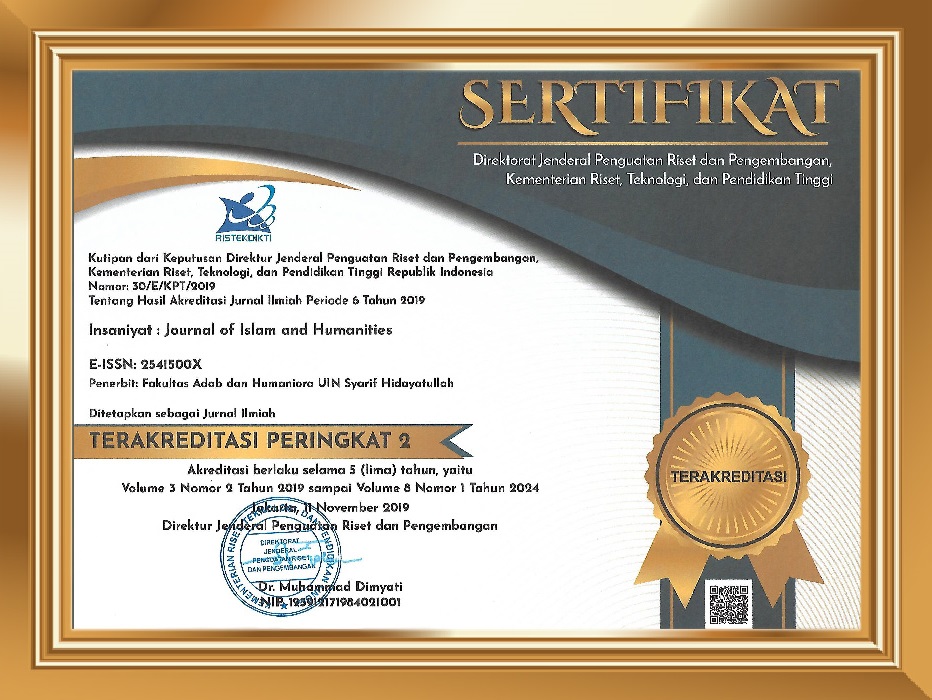The Effectiveness of Zakat in Developing Muslims in Malaysia
Abstract
Zakat is the third of the five pillars of Islamic faith, relating to wealth and welfare of the society that helps to close the gap between the poor and the rich. The efficient and systematic zakat management is able to propel it’s potential as an instrument of human developments especially among Muslims. The optimum utilization of zakat funds is essential to improving the quality and potential of every Muslim. In Malaysia, zakat is administrated by the Islamic Religious Council (IRC) in every state. The IRC is responsible for determining the beneficiary's qualification and the type of relief that is appropriate based on the background of each recipient so that the relief can be utilized to fulfill their needs. This study aims to assess the potential of zakat in developing the quality of Muslims in Malaysia by highlighting the practice of each IRC in distributing relief to each qualified zakat recipient. The distribution statistics and the form of programs provided by the IRC were analyzed descriptively to see the potential of zakat itself practically in improving the quality of Muslims. The study found that the IRC has provided various programs aimed at improving the quality of asnaf through equitable distribution of economics, social welfare distribution, human capital production and upgrading of education. Thus, every Muslim, especially zakat payers, should take the opportunity to equally engage with the IRC to ensure that zakat funds can be optimized for the developments of Muslims in Malaysia.
Keywords
References
Ahmad Fahme. (2011). The Role of Zakat in Reducing Poverty Reduction in Kelantan, Malaysia. (Dissertation, Master of Social Science, University Putra Malaysia).
Azman Ab Rahman dan Siti Martiah Anwar. (2014). Dana Zakat dalam Pendidikan Asnaf dan Sumbangannya Terhadap Ekonomi Malaysia. (Proceeding, Persidangan Kebangsaan Ekonomi Malaysia ke-9, Kuala Terengganu, Terengganu, 17-19 Oktober 2014).
Azman Ab Rahman, Mohammad Alias dan Syed Mohd Najib Syed Omar. (2012). Zakat Institution in Malaysia: Problems and Issues. Global Journal Al-Thaqafah, Vol. 2 No. 1.
Bakar, M. A., & Ghani, A. A. (2011). Towards Achieving The Quality Of Life In The Management Of Zakat Distribution To The Rightful Recipients (The Poor And Needy). International Journal of Business and Social Science, Vol. 2 No. 4.
Bakar, N and Rashid, H. (2010). Motivations of Paying Zakat on Income: Evidence from Malaysia. International Journal of Economics and Finance, Vol. 2, No. 3.
Hairunnizam Wahid, Sanep Ahmad dan Mohd Ali Mohd Noor. (2004). Kesan Bantuan Zakat terhadap Kualiti Hidup Asnaf Fakir dan Miskin. The Journal of Muamalat and Islamic Finance Research, Vol. 1 No. 1.
Hassan, K. (2010). An Integrated Poverty Alleviation Model Combining Zakat, Awqaf And Micro-Finance. (Proceeding, Seventh International Conference The Tawhidi Epistemology: Zakat and Waqf Economy, Bangi, Malaysia 2010).
Muhammad Hafiz Badarulzaman dan Siti Nabilah Sulaiman. (2016). Undang-Undang Pentadbiran dan Pengurusan Zakat di Malaysia: Perbandingan antara Enakmen Negeri-Negeri. (Proceeding, The 5th International Conference of Law and Society (ICLAS V), University Sultan Zainal Abidin, Kuala Terengganu).
Patmawati Ibrahim. (2008). Pembangunan Ekonomi Melalui Agihan Zakat: Tinjauan Empirikal. Jurnal Syariah, Vol. 16, No. 2.
Patmawati Ibrahim dan Rahisam Ramli. (2010). Kesan Agihan Zakat Dalam Membasmi Kemiskinan Dan Ketidakseimbangan Agihan Pendapatan Di Negeri Sembilan. (Proceeding, Persidangan Kebangsaan Ekonomi Malaysia ke-5, Faculty of Economics and Management, University Kebangsaan Malaysia).
DOI: 10.15408/insaniyat.v3i2.11315
Refbacks
- There are currently no refbacks.






